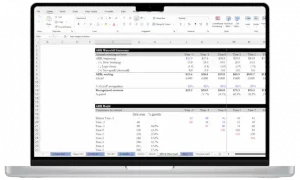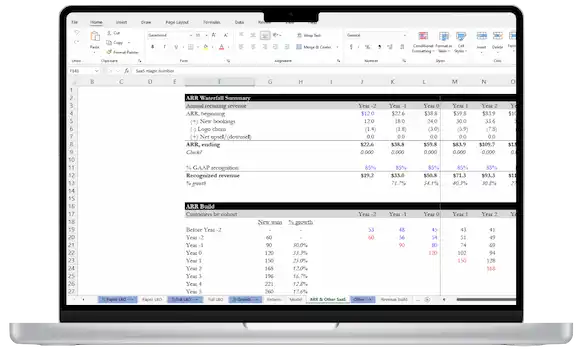Private equity (PE) funds consist of a number of different role-players and entities. This can make it confusing to determine the actual hierarchy of these private equity firms and how they operate.
In this article, I’ll be discussing the typical private equity fund structure so that you can understand how these firms work from the inside.
How Are Private Equity Funds Set Up?
A private equity fund is a pool of capital that is formed through a limited partnership (LP) agreements. LPs contribute capital to the private equity fund, and they are entitled to (most) the financial returns that fund creates.
Mechanically, typically LPs will “commit” money to a fund, but they won’t actually wire the funds to the private equity firm until the private equity firm finalizes an investment deal.
Private equity firms invest this capital into shares in private companies or in public companies they plan to delist, with the expectation that these companies will increase in value.
What Is The Most Typical Structure Of A Private Equity Fund?
As previously stated, there are a number of roleplayers and entities in a private equity fund. In this section, I will discuss what each entity does and how they connect in the hierarchical structure of a private equity fund.
Financial sponsor
The financial sponsor is comprised of a team of people who are in charge of identifying, executing, and managing investments made by the fund.
The financial sponsor is separated into two entities, which are the general partner and the management company.
General Partner
General partners have the legal authority to make decisions on behalf of the fund. The general partner also assumes all legal liability in the case of lawsuits. In most cases, the general partner will be the private equity firm.
The general partner is often also referred to as the fund manager.
Management Company
The management company, which is also referred to as a private equity firm, is the entity that employs the fund manager and their investment team.
The management company is solely responsible for raising capital and overseeing investments. Investors who hire a management company have the benefit of an experienced fund manager and the team, which means the investors do not have to handle their investments themselves.
Management companies are usually separate legal entities from the fund, which can offer protection to investors should legal issues occur.
Limited partners
Limited partners (e.g. pension funds) contribute funds that act as capital in a private equity fund. Limited partners entrust the private equity firm’s employees to invest their capital and to generate a return.
While limited partners have the benefit of limited liability, they don’t have official say in what companies their capital is invested into. However, it is possible for them to stop adding future capital to the fund if they disagree with the investments being made.
When these investors hand over their capital, it is often done through a limited partnership agreement. This agreement will usually stipulate that the invested capital or resulting assets will be returned in a fixed period of time.
The private equity fund itself
The private equity fund is an entity in itself. Private equity funds are usually established as a Limited Liability Company (LLC) or a Limited Partnership (LP). The reason the fund is its own entity is the fact that it offers benefits for those involved in these limited partnerships.
These benefits are:
- They are only liable for the capital they have invested in the fund.
- They offer tax benefits, as LLCs and LPs are both pass-through tax entities.
Portfolio companies
Portfolio companies are the companies that the fund invests in. These companies usually seek private equity investment, as it can provide the company with the capital it needs to grow.

- 66 lessons
- 12+ video hours
- Excels & templates
What Are The Terms Of A Limited Partnership?
Limited partnership agreements contain the terms that the private equity firm and limited partners agree to.
These agreements cover stipulations such as:
- What percentage of the fund can go towards one specific investment
- Term extension guidelines
- Portfolio company restrictions
- Fees and payout structure of the fund
- The duration of the fund
- Diversification requirements
- The roles, liabilities, and risks associated with each party involved in the agreement
Limited partnership agreements also often outline a life cycle metric regarding the duration of the fund. Private equity funds usually have a length of ten years and are comprised of five different stages:
- The organization and formation of the fund
- The period when funds are raised (around 12 months long)
- The deal-sourcing and investment period
- The portfolio management period (around five years long with a possible one-year extension)
- Exiting from existing investments
These deals generally need to be exited within a specific timeframe due to their incentive structure and a private equity company’s possible interest in creating a new fund.
What Are The Required Fees In A Private Equity Fund?
Private equity companies need to be compensated for their investment services. Hedge funds and private equity funds share similarities in their fee structures and consist of similar fees.
These fees include management fees and performance fees (carry).
Management fees
The management fee is normally pegged at 2% of the capital invested in the fund. This management fee is used to cover the operating costs of the management team. Some of these operational and administrative fees include salaries, deal fees, and any other fees that will be required to run the fund.
Unfortunately, even if the private equity fund does not turn a profit, this fee will still be earned.
Performance fees (carry)
The performance fee is a percentage of the profits generated by the fund that is awarded to the private equity firm. These fees can be as high as 20% of the profits, but they usually depend on whether the fund was able to turn a profit as a whole (aka they kick in at a certain level of returns).
Performance fees act as an incentive for fund managers, as they can earn significantly more from these fees if they are able to do good deals.
What Is The 2 And 20 Rule In Private Equity?
The “2 and 20” rule in private equity refers to the percentages mentioned in the section above.
Private equity companies charge 2% of the invested capital for management fees and 20% of the generated profits if the investment is profitable.
While these percentages can differ slightly depending on the fund, they are normally the going rates for both hedge funds and private equity funds.
Private Equity Fund Exit Strategies
When a private equity firm wants to successfully exit an investment and sell the shares they’ve purchased, there are many strategies at its disposal.
I will list and explain them below.
- Initial Public Offerings: Shares of a private company are first presented to buyers on public stock exchanges.
- Strategic acquisitions: The shares in the portfolio company are offered to another company.
- Secondary sales: A private equity company sells its shares to another private equity company.
- Management acquisition: Executives from portfolio companies buy their own shares back from the private equity company.
FAQs
Who Can Invest In A Private Equity Fund?
Most investors in private equity funds are large endowments, pensions, or family offices.
If you want to invest in a private equity fund in the US as an individual, you will need to be wealthy and have access to a significant amount of capital, since there are so-called accredited investor rules.
However, note, some of these rules have changed with new legislation, so consult a lawyer to determine your eligibility.
What Is A Fund Of Funds?
A fund of funds is when a private equity company invests in another PE company, which will then invest in portfolio companies. There are many benefits to investing in a fund of funds, but they also come with their own risks and drawbacks (e.g. paying double fees!).


 Break Into Growth Equity
Break Into Growth Equity

